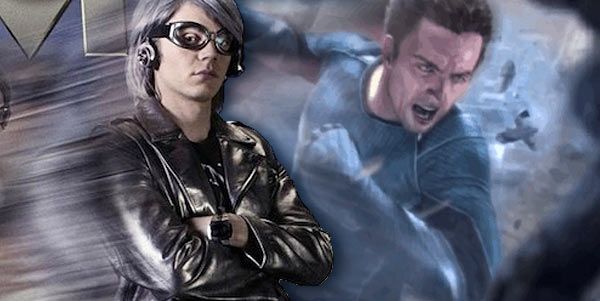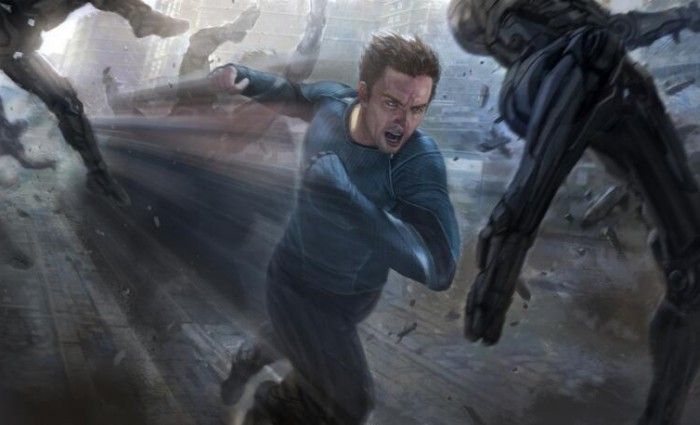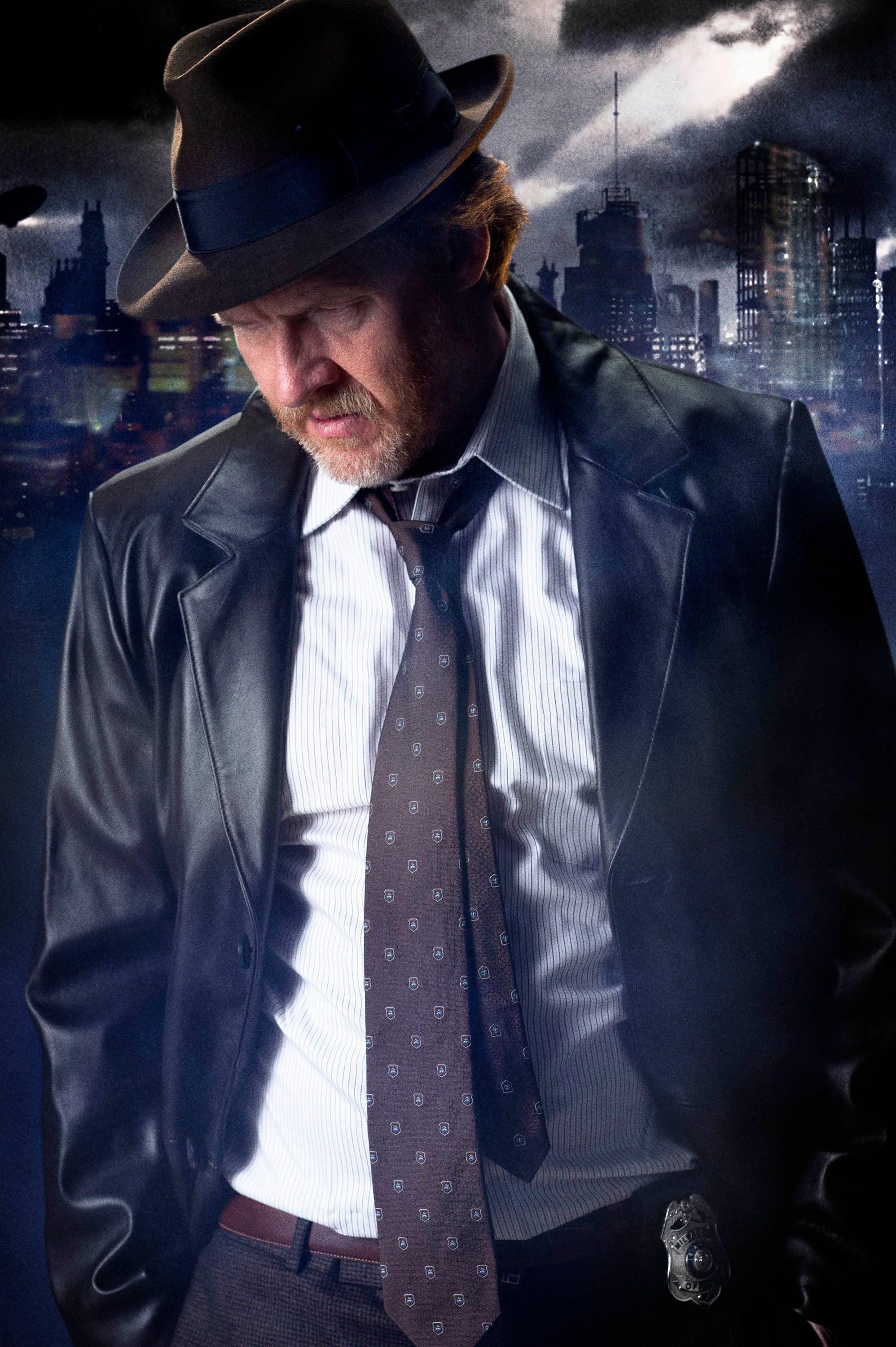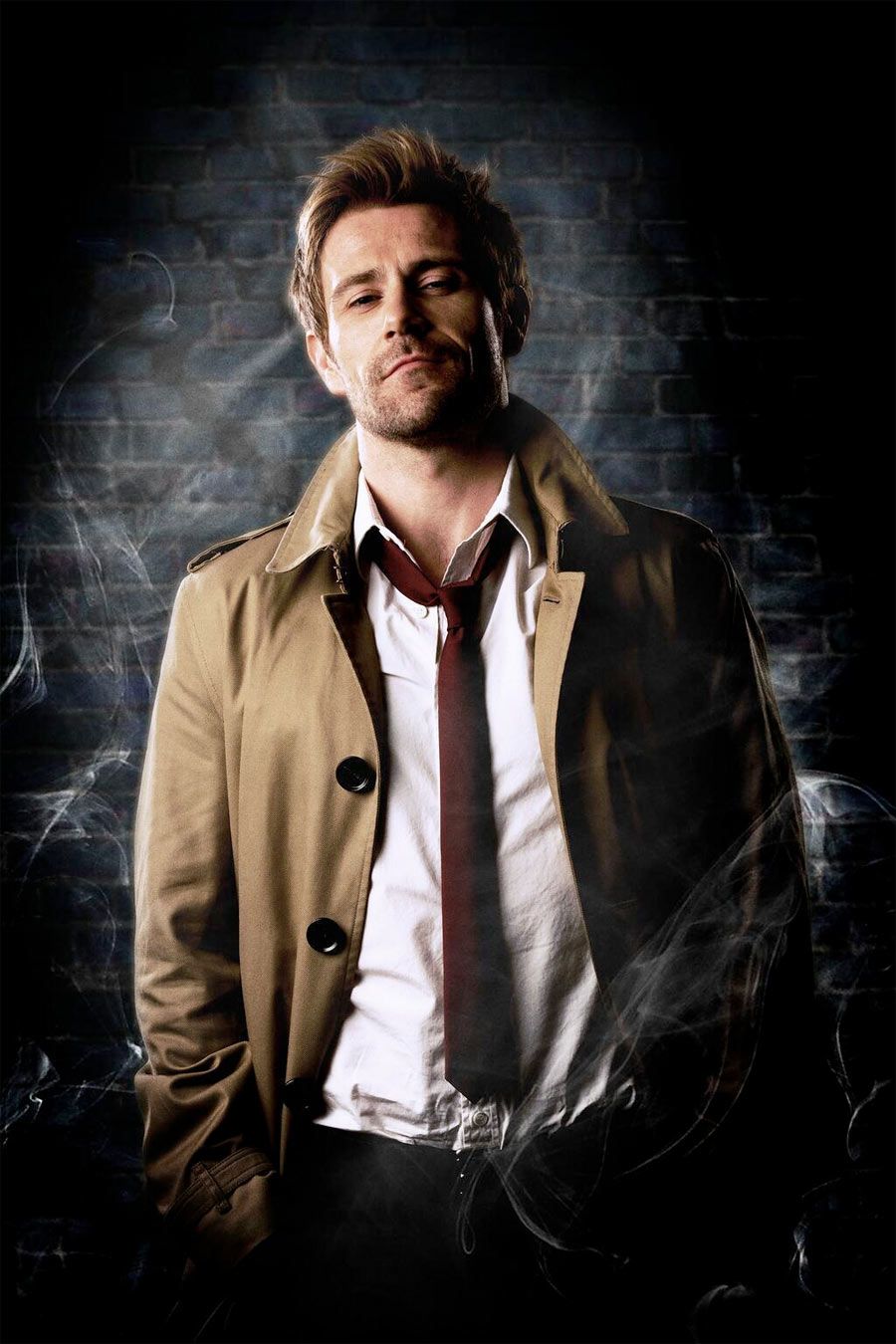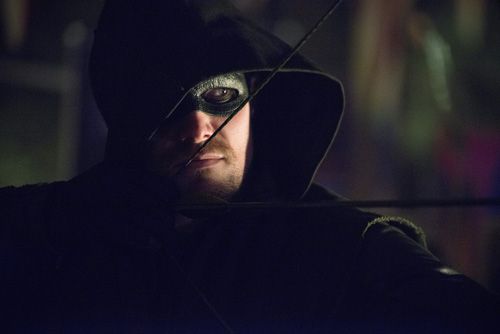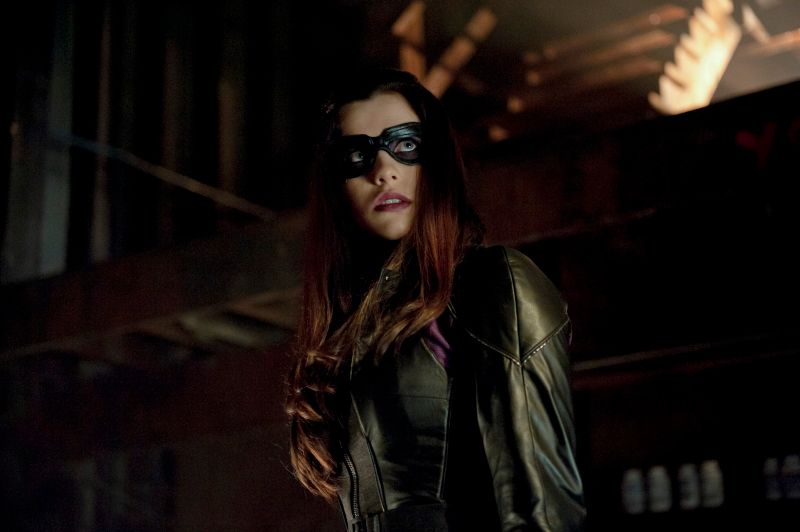It might be becoming a cliche to say it, but now's a pretty good time to be a comic book fan. Just 15 years ago, fans had one super hero franchise -- Batman -- that had gone off the rails completely, and movie studios seemed content to only greenlight movies based on little known properties like "Tank Girl" or Golden Age classics like "The Phantom." The live-action television landscape was an even more barren place, unless David Hasselhoff's "Nick Fury" TV movie satisfied your hunger for Marvel adaptations. That's not the case anymore, and 2014 and 2015 are shaping up to be the biggest years comic books have ever had on both the big and small screen. And with that comes, as we're starting to learn, a big multiverse problem.
If we take all of Marvel and DC's current and future live-action properties into account, we're looking at seven simultaneous universes telling ongoing stories. There's the Marvel Cinematic Universe, the Marvel/Fox Universe, the Marvel/Sony/Spider-verse, the "Man of Steel"-verse, and the "Arrow"-verse. Pretty soon we'll see the birth of both Fox's "Gotham"-verse and NBC's "Constantine"-verse. For the first time in a long time, possibly ever, multiple live-action versions of super hero characters are appearing simultaneously. This is real uncharted territory, and it could prove to be treacherous terrain.
Scarlet Witch, Quicksilver Star in New "Avengers: Age of Ultron" Concept Art
The problem first reared its head last year when directors Bryan Singer and Joss Whedon announced that one character, Quicksilver, would pop up in both Fox's "X-Men: Days of Future Past" and Marvel's "Avengers: Age of Ultron." We've now seen how Evan Peters and Aaron Taylor-Johnson will appear in each film, and there appear to be very few similarities beyond their powers and codenames, but the precedent has been set.
Fans that thought Marvel's adaptations were a bit confusing had better brace themselves for what DC's about to pull off. While Marvel's comic book universe has been divided up between three studios and three different and ever-expanding cinematic universes, DC will be maintaining three different TV universes and one larger movie-verse -- should everything go their way after pilot season, that is. In addition to the "Arrow"-verse established on the CW show and hopefully joined by "Flash" next season, it's likely that both NBC's "Constantine" and Fox's "Gotham" will establish their own universes as well. On top of all that, the upstart DC Cinematic Universe will make its second appearance in 2016's still-untitled Batman vs. Superman movie.
So what's the problem, really? Isn't this what we've always wanted, more comic book adaptations than ever before? I know there have to be a few Quicksilver fans still holding their heads in disbelief that their favorite, relatively underused comic book character will be in two big budget films. The problem is that multiple, sprawling, overlapping universes are exactly the kind of thing that alienates people that either don't read comics or are new to the medium. I'm definitely guilty of assuming that everyone is as entrenched in this stuff as I am, and I will wrongly assume that everyone can easily categorize every Marvel hero with their proper movie studio -- but that's not the case. Every time I go see a midnight showing of a new super hero movie, I consistently hear people expecting to see Spider-Man show up in a Marvel Studios movie or other similar things that my way-too-involved brain flinches in disbelief at. But the thing is, these are people that are seeing a midnight showing of a movie. They love it, and their fan experience -- one that doesn't as much involve over-informed speculation as mine does -- is valid.
"Arrow" EP Guggenheim: "You Haven't Seen the Last of the Suicide Squad"
The best comic book movies have been met with success because they present streamlined and easily digestible versions of characters that, in the comics, have decades of history and dozens of different status quos holding them down. When my friends that don't read super hero comics ask me for recommendations, usually after seeing an awesome comic book movie, they put a lot of qualifiers on their request. They want something that's a fresh start and doesn't rely on complex continuity; there's a fear out there by non-readers that every comic book is just an impenetrable mess of footnotes and references. While I don't think that's necessarily true anymore, that fear is founded in the reality of decades past. While this problem is far off on the big screen, I do worry about non-readers going to super hero movies and seeing other versions of characters they just saw in another recent movie. If you have to spend more than thirty seconds explaining to your friend the complicated and convoluted nature of comic book movie rights after seeing a big action movie, does that lessen the overall experience?
For the most part, Marvel's big-screen rights are contained within relatively strict borders. Quicksilver's the first instance of overlap, and there are only a handful of other characters that could follow in his swift footsteps. It's fitting, then, that the company that brought us "Crisis on Infinite Earths" would be the one potentially juggling multiple universes with total overlap. As far as we know, DC has much looser borders, if they have any at all. "Gotham" and "Constantine" could introduce their versions of Oliver Queen and Barry Allen, and "Arrow" and "Flash" could return the favor. Fans previously assumed that most things Bat-related were off-limits for "Arrow," but characters like Huntress and, more recently, Harley Quinn have popped up on the show. With a Bat-centric show like "Gotham" set to air on Fox next season, how likely is it that either one of those characters will pop up there? Will Harley Quinn's role on "Arrow" be left in the Easter egg basket to avoid confusion with "Gotham"?
As more and more comic book properties get adapted, I think the general perception of super heroes is going to evolve. Right now, comic book fans are used to there being -- on average -- two versions of a comic book character running around at any given time: the comic book version, and a live action version. Sometimes there's an "Ultimate" version, sometimes there's an animated version, but for the most part they've been separated by medium. One's a comic book, one's a real person, one's a cartoon, that's easy to keep straight. Knowing how reboot and sequel-crazy our culture is right now, we might have to start viewing super heroes and their supporting characters more like how we view those found in fairy tales and classic literature. Every weirdly specific gripe and worry I just listed above could easily apply to a character like Sherlock Holmes, yet I don't think people consider the character's appearances in a recent movie franchise and two currently running television shows as a big barrier to entry. Over the past couple hundred years, we've all gotten used to the idea of seeing multiple versions of Dracula, Snow White, Peter Pan and other similar characters. Super heroes are next in line.
Based on how successful a lot of those shows and movies are, I'm probably underestimating how capable non-readers are when it comes to this whole thing. Our parents or co-workers or brothers-in-law might already view a character like Commissioner Gordon the same way they do the perpetually rebooted Sherlock Holmes. Not too long ago, Warner Bros. blocked their CW shows from using Batman and his characters because they were big screen material and they didn't want to confuse or dilute the brand. Things have changed since then, as evidenced by "Gotham's" existence and Harley Quinn's recent "Arrow" cameo. If confusing audiences is no longer a concern, then there might be nothing holding studios back from adapting more and more ideas in crazier and more original ways. There are still a lot of questions to answer as super hero adaptations take their next step, but we can be certain that Quicksilver won't be last character to get Sherlock-ed.

